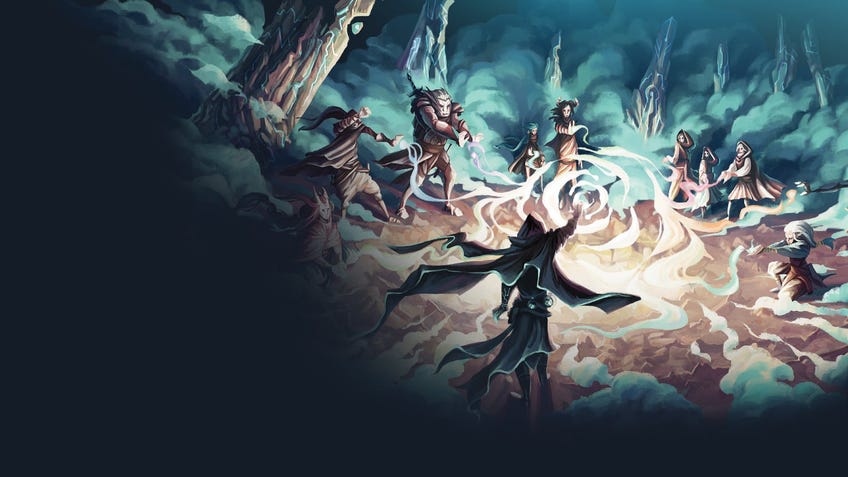Cortex Prime's new community license sparks criticism among players and RPG designers
The team behind the genre-agnostic RPG plans to address community complaints in a future version of the agreement.
Cortex Prime is facing community backlash over a pair of licenses outlining how fans and independent designers might use the genre-agnostic RPG system to power their own creations. Statements from design team members have seemed at odds with the legal reality of the proposed licenses, leaving many skeptical and frustrated.
Fandom Community Manager Mellie Doucette posted an update to the game’s Kickstarter page on November 30th, outlining both the originally planned community license and the newly announced commercial one. The former, which would allow players to create and share hacks, mods and other content online for free, can be found here. Cortex Prime, the latest version of a decades-old system behind the Serenity, Battlestar Galactica and Supernatural RPGs, crowdfunded its current ruleset in 2017.
Doucette, who works for the former wiki-hosting company that owns Cortex Prime, used an FAQ format to explain the somewhat dense language of the legal agreement, largely focusing on the material difference between mods (Cortex Prime’s word for mechanics) or rules and the fiction, artwork and lore of established setting.
Many have highlighted one paragraph in the explainer as particularly troubling. Apparently, Fandom will own “all trademarks and copyrights in and to the Cortex System and Game mechanics, systems, mods and other rules created (whether by Fandom or You) that become a part of the Cortex System. Any new Cortex Prime mechanics, mods, and other rules you create or alter become available for other members of the Cortex community to use under the license linked above.”
On its face, this sounds like Cortex Prime, and by extension Fandom, can use this license to claim ownership of anything created under it. The tabletop community’s hackles raised, as tends to happen in response to copyrighting mechanics and rules. Cortex Prime’s announcement tweet is full of examples of folks criticising the move, calling it “unfortunate” and a “legitimately bad” license for indie designers.
Other sections explicitly denied the use of the license to create content the public would deem “offensive, or inappropriate for minors”, which - as user FrivYeti explained in the post’s comments - has historically been used as an excuse to police LGBTQ+ art and literature. Other individuals admitted confusion over the license restricting a free game being listed on other digital storefronts, such as DriveThruRPG or Itch.io.
Several members of the Cortex Prime team, including creative director Cam Banks, spent the next couple of days running damage control on the announcement and attempting to explain the reasoning behind this move. Banks mentioned in a tweet that the team’s goal was to establish “an ecosystem by which you add back to it when you make more stuff for it, so long as we’re talking rules and mods and hacks for the rules we’re providing as the basis of the license. This lets other people use it freely as part of this license, too.”
“The key goal for Cortex Prime has always been to develop an ecosystem where game mechanics ('mods' in Cortex Prime) are shared between creators, where the community can build off of what Cortex Prime provides, and put back a version of what they make into the system for the next community creator,” Doucette said in an email to Dicebreaker.
A lingering question is what stops Fandom from publishing any free material created under the Community License and potentially profiting from the free labour of fans? The design team has flatly denied any such intent in online conversations, repeating a hope that collaborative sharing of ideas and inspiration stregthens everyone's art. But why was the license allowed to go public in such a manner? The answer might be related to the as-yet unreleased Cortex Creator Studio.
“Our initial plan for Cortex Prime licensing was to offer the Cortex Creator Studio, a distribution channel, marketplace, gaming hub, and design tool,” Doucette said. “The licenses being developed were intended to work in concert with the studio, making the needs of them a little different from some of the great licenses community members have been suggesting, like the Mörk Borg license.”
Hence the restriction on using DriveThruRPG or Itch.io - Fandom wants to consolidate licensed content in one location, likely to create a more modern version of what Dungeon Masters Guild provides for Dungeons & Dragons 5E material. The licenses had been designed for features and infrastructure that simply doesn’t yet exist.
The responses from Banks and others show an evident chagrin in how the community reacted, even as “some folks in their criticisms tap into what they believe our intent was, versus what actually came out in the wash,” according to Doucette. She said the team’s next moves will be to match the legal wording with the larger goals of fostering a vibrant community around Cortex Prime.
Another, perhaps more cynical, explanation is that Fandom is cementing Cortex Prime’s legal protections to look more favorable to established IPs in other media spheres. Both Tales of Xadia: The Dragon Prince RPG and Legends of Grayskull: Masters of the Universe RPG are part of an influx of media properties being adapted for the tabletop. In response, Doucette didn’t exactly deny the benefit.
“A reasonable part of Cortex Prime is the ability for us to create tailored tabletop games for shows, movies, video games, and more that feel like a natural extension of the source material,” she said. “Anything we release, from a simple social media post to a non-commercial license, must be done with those relationships in mind, just as they're done with the Cortex community in mind.”
The design team will almost certainly release an updated license agreement in the future, though Doucette said internal processes make that work slow. There has also been no word on how Fandom might legally enforce these agreements.


